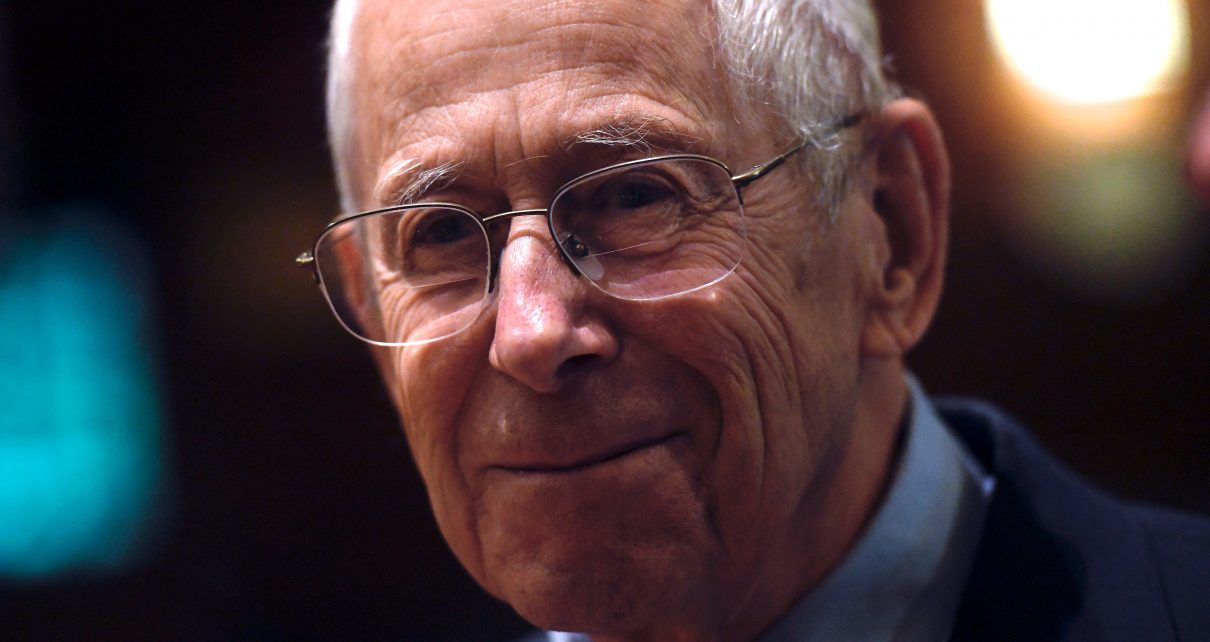This essay is adapted from the book Cosmology’s Century (Princeton University Press).
Robert Dicke came out of war research, specifically radar and other microwave technology, at the Radiation Laboratory at MIT. He would eventually establish a productive research group—one of the many scientists to do so after the end of World War II.
Dicke liked astronomy; his early publications include the radial distribution of stars in a globular cluster and a report of the detection of microwave radiation from the Sun and Moon. After the war, he spent a productive decade of research on what might be termed “quantum optics.” In the late 1950s, he decided to apply the great advances in the technology of laboratory physics to the neglected subject of empirical gravity physics: classical gravity experiments that could be done better and new ones that had become possible.
Dicke was offended by the scant empirical tests of gravity physics and set out to improve them. He was interested in theory, provided it had some possible connection to what might be measured. I like to think that my empiricist philosophy is my own choice, but Dicke certainly reinforced it. To the best of my knowledge, Dicke was not aware of other scientists leading similar pursuits, such as the Soviet Union’s Yakov Zel’dovich, when he decided to create a program of research in gravity physics and cosmology.
When I arrived at Princeton as a beginning graduate student in 1958, members of his Gravity Research Group already were working on elegant experiments probing gravity, and others were examining such arcane things (to me) as the dates and positions of early observations of solar eclipses, which test how the Moon and Sun have been moving over centuries. That was motivated by Dicke’s fascination with the possibility that the strength of the gravitational interaction may be so small because it has been decreasing for a long time as the universe evolved. He felt the idea makes a lot of sense, as do those who now seek a more complete fundamental theory.
But Dicke most liked looking into the many phenomena in the laboratory and to be found in all the other branches of natural science that might show signs of something interesting about gravity. His brilliant experimental methods grew into the monitoring of continental uplift following the last ice age; the seismographic network that monitors underground explosions; the laser tracking of the Moon that produces precision tests of gravity physics; and the microwave technology that has taught us so much about the structure and evolution of the universe. Dicke never abandoned interest in the search for new gravity physics, but he was quite content that the group he had formed pursued other varieties of observation and theory. His Gravity Research Group remains productive in its fourth generation.
We need not count as peculiar to cosmology the examples of ideas and measurements that appeared just as they were needed for the next step forward, often originating in more than one apparently independent source. Consider Newton and Leibniz on the invention of calculus, or Darwin and Wallace on their independent and effectively simultaneous recognition of natural selection. Maybe some examples in cosmology are only coincidental, and some are only consequences of our tendency to present history as a sequence of developments that makes the process seem more orderly and inevitable than it is. But maybe some of it hints at the sometimes subtle ways we communicate.
Cosmology shares with particle physics the possibility of computations from first principles or reasonably close to it. This enabled the remarkably demanding tests from measurements of the remnants of acoustic oscillations in the distributions of galaxies and the sea of microwave radiation. Cosmology shares with many branches of science the challenge of complexity. Observations of galaxies were important to the birth of modern cosmology, but their properties do not figure in the precision tests at the turn of the century and later, because the properties of galaxies are not at all easy to understand. I share the suspicion/hope that the puzzles of galaxy rotation curves and all the rest of the phenomenology of these objects still have something of value to teach us about cosmology.
The research path to where we are now in cosmology is marked by debates on open questions, as is usual in natural science. But the issues in cosmology have been defended and criticized with considerably more vigor than might have been expected from the modest weight of the evidence at the time. This was in part because observations that might settle questions in cosmology have tended to seem just out of reach or perhaps just barely possible. And I think an important factor has been the tendency to take a personal interest in the nature of our world. Is the universe really evolving, or might it be in a steady state? If evolving, how might it all end, in a big crunch or a big freeze? And where did it all come from? Such debates are quieter now, because we at last have a theory that passes an abundance of tests, but they continue.
Cosmology is a social construction—what else? Ideas are promoted from social constructions to elements of the generally accepted world picture for reasons that seem easy to sort out but difficult to encode in a general rule for admission to the canon of standard and accepted science. It is a collective subjective decision. There are some general guidelines, however. A theory might offer a testable prediction, something that did not figure in devising the theory. If the test is positive, it is a serious addition to the case for the theory. If it fails but can be remedied by adjusting the theory, the result is a modest addition to the case, because it shows that the theory at least can accommodate the facts.
The story of how cosmology grew is fairly simple, compared to what people have been doing in other branches of science, but still complicated enough that sorting it out requires a better plan than the common practice in science. People now contributing to advances in research in cosmology should be aware of the history of their subject. To do better, we have to look further back in time, and we certainly have to consider the ideas that seemed interesting but were falsified or otherwise found not to be so interesting after all.




